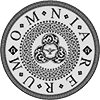Conditions we treat
Alzheimer’s Disease Symptom Management at Omnia in London
How can our treatments help you?
Conditions we treat
Alzheimer’s Disease Symptom Management at Omnia in London
How can our treatments help you?

Complementary care…
Holistic treatments for Alzheimer’s are complementary and intended to enhance conventional care. Always consult with qualified healthcare professionals before integrating holistic approaches, especially in complex conditions like Alzheimer’s.
At Omnia Lifestyle, we are committed to weaving these holistic therapies into personalised treatment plans.
The Holistic Approach: Addressing Mind, Body, and Spirit
Alzheimer’s disease is a progressive brain disorder that gradually impairs memory, cognitive abilities, and behaviour. As the disease advances, individuals may face challenges in communication, decision-making, and self-care.
While there is currently no cure for Alzheimer’s, holistic treatments aim to enhance cognitive function, alleviate symptoms, and improve the quality of life for both patients and their caregivers.
At Omnia Lifestyle, we are committed to weaving these holistic therapies into personalised treatment plans. Our goal is to empower individuals and their families as they navigate Alzheimer’s, fostering holistic well-being on every level. Reach out to us today to embark on a collaborative journey towards a brighter cognitive future.
At a Glance
Therapies we offer to help manage Alzheimer’s Disease symptoms:
1. Ayurveda:
Ayurveda, a traditional Indian healing system, emphasises harmony between mind, body, and spirit. In the context of Alzheimer’s, Ayurvedic treatments focus on nourishing brain health and promoting mental clarity.
Ayurvedic Strategies for Alzheimer’s:
- Diet and Nutrition: Specific foods and herbs with cognitive-boosting properties are incorporated to support brain function.
- Mindful Practices: Meditation, Pranayama (breathing exercises), and Rasayana (rejuvenation therapies) are used to enhance mental well-being.
2. Yoga:
Yoga’s integration of physical postures, breath control, and meditation can be beneficial for individuals with Alzheimer’s. It promotes relaxation, stress reduction, and cognitive resilience.
Yoga Practices for Alzheimer’s:
- Gentle Asanas: Modified yoga poses that focus on flexibility and relaxation can be practiced to enhance overall well-being.
- Breath Awareness: Pranayama techniques enhance oxygenation and mental clarity.
- Mindfulness Meditation: Meditation calms the mind, reduces stress, and supports cognitive function.
3. Acupuncture:
Acupuncture, a traditional Chinese therapy, involves stimulating specific points on the body to restore the flow of energy. It may improve cognitive function and overall well-being.
Acupuncture for Alzheimer’s:
- Cognitive Support: Acupuncture may help stimulate cognitive function and enhance memory.
- Stress Reduction: The calming effect of acupuncture can alleviate stress and anxiety.
4. Photobiomodulation:
Photobiomodulation uses light to stimulate cellular processes. It holds promise in supporting brain health and cognitive function.
- Cellular Stimulation: Light therapy may promote cellular energy production, potentially benefiting brain cells.
- Neuroprotection: Photobiomodulation’s anti-inflammatory effects may support brain health.
Holistic treatments for Alzheimer’s are complementary and intended to enhance conventional care. Always consult with qualified healthcare professionals before integrating holistic approaches, especially in complex conditions like Alzheimer’s. A holistic approach considers the individual’s unique needs, offering a path to improved cognitive function, emotional well-being, and a more enriched life.
“Professional and friendly staff. Very high standards of customer care and service.”
E O – September 2023
“Excellent place to treat your pain, staff is very pro and friendly. It is definitely worth a try.”
M G – September 2019
“It was a pleasant and professional experience.”
S D – August 2019
What to do next
At Omnia Lifestyle, we believe in a holistic approach to help manage symptoms of Alzheimer’s Disease. Our experienced practitioners are skilled in combining these diverse techniques to develop a personalised treatment plan that suits your or a loved one’s needs. Contact us today to embark on a journey towards lifestyle changes and overall well-being.
Alternatively you can arrange a convenient date/time for your consultation:
Frequently Asked Questions (FAQs)
Herbs can be a powerful adjunct to Acupuncture therapy. They are used to strengthen, build and support the body or clear it of excess problems like a cold, fever or acute pain. To build up your internal strength, your Acupuncturist may suggest starting with herbs and then undergo Acupuncture for a better outcome.
There can be a detox effect, which can take the form of mild flu-like symptoms or a rash. This is usually a normal reaction and indicates that the herbs are doing their job. Sometimes the reaction can be stronger, and usually, the practitioner makes an adjustment in the dosage. It is important to make your practitioner aware of any known allergies.
Treatment frequency and the number of treatments needed depend on several factors: your constitution, mental state, the severity and duration of the health condition, and lifestyle habits. Occasionally, the pain relief can be felt immediately after treatment, but for lasting and effective results, a minimum of 4–6 treatments are recommended. Chronic conditions usually take longer to resolve than acute conditions.
If you have been prescribed medication, we recommend that you inform your GP that you are considering Ayurveda therapy. You should continue your regular medication. During the initial consultation, your Ayurveda consultant will advise you of contraindications such as high fever and severe renal and cardiac diseases. You may also be referred to your GP if the Ayurvedic physician treating you recognises a risk during your consultation or even after treatment.
In Ayurveda, sesame oil is considered the queen of all oils because it has active principles that produce health benefits. Cured sesame oil should be used for this purpose, as the heating converts weak antioxidants into a potent antioxidant substance known as sesamol. Moreover, medicated herbal oils are used to treat specific conditions. For example, for arthritic problems, oils containing herbs that are Vata and Kapha-pacifying and have anti-inflammatory properties will be used. For anxiety, herbs possessing adaptogenic action, such as Ashwagandha, will be used.
There is no harm in keeping oil on your skin or hair for a long period of time. However, you can remove the oil immediately after the treatment. We also have a shower facility, if required.
Yes, Photobiomodulation is considered safe when used appropriately. The light used in these treatments is non-ionising and generally doesn’t cause harm. However, it’s important to follow proper guidelines and consult a healthcare professional if you have concerns.
Photobiomodulation is usually painless. Patients might feel a mild warmth or tingling sensation during the treatment, but it’s generally well-tolerated.
Session lengths can vary based on the specific treatment and area being treated, but they typically range from a few minutes to around 20-30 minutes.
Yes, it is safe for children and babies. In some cases, children respond more quickly to acupuncture than adults. If your child has an aversion to needles, the practitioner may recommend Acupressure or Tui Na Massage.
Two independent surveys published in the British Medical Journal (BMJ) concluded that the risk of serious adverse injury from acupuncture is less than 1 in 10,000, significantly less than most conventional treatments. The needles used are single-use, sterile, and disposable.
The number of sessions required varies depending on the condition being treated and individual response. Some people might experience benefits after just a few sessions, while others might need a greater number of sessions to achieve the desired results.
Treatment frequency and the number of sessions required depend on several factors, including your constitution, mental state, the severity and duration of the health condition, lifestyle habits, and the quantity and quality of your Qi. Acupuncturists believe that health determinants are unique to each individual. Typically, some change is noticed within 5 or 6 treatments, although occasionally 1 or 2 treatments may suffice. Chronic conditions typically require more time to resolve than acute ones.
While generally safe, Photobiomodulation may present contraindications for individuals with conditions such as claustrophobia, photosensitivity, active skin infections or cancerous lesions, photosensitive seizure, and pregnancy. We recommend consulting a healthcare professional before undergoing any treatment.
If you have been prescribed medication, we recommend that you let your GP know that you are considering acupuncture therapy. You should continue your regular medication. During the initial consultation, your acupuncturist will advise you of any contraindications, such as metal allergy, haemophilia, or if you take strong anti-coagulant medication. You may also be referred to your GP if the acupuncturist treating you recognizes any risks during your consultation or even after treatment.
Side effects are rare and generally mild. They might include temporary redness, slight discomfort, or irritation in the treated area. These effects usually subside quickly.
Many people avoid acupuncture because they think needles will hurt. Acupuncture needles are very small in diameter, approximately twice as large as the average diameter of human hair and 10 times smaller than the average diameter of a standard hypodermic needle. Most people find acupuncture calm and relaxing. Patients often describe the needle sensation as a tingling or dull ache. This is a sign that the Qi is being stimulated and released, indicating that the treatment is working. At Omnia, we also offer Electroacupuncture and Fu Needle treatments, which minimise any fear or discomfort caused by needles.
The duration of effects can vary based on the individual, condition treated, and maintenance. Some people experience longer-lasting results with consistent treatment.
Acupuncture is sometimes available on the NHS from GP practices and physiotherapists, as well as in most pain clinics and hospices in the UK. Most acupuncture patients pay for private treatment. As the demand for complementary medicine increases, more private health insurance companies such as AVIVA and BUPA are beginning to offer coverage for acupuncture.
Insurance coverage varies. Some medical conditions and contexts might receive coverage, but you should check with your insurance provider.
The tongue acts like a barometer, reflecting the health and well-being of your internal meridians and organs. The Acupuncturist will look at the general characteristics of the tongue such as colour, shape, cracks and coating on it to get an idea of how your body is functioning on a macro level.
There are 12 pulse positions on each wrist that the Acupuncturist will palpate. Each position corresponds to a specific meridian or organ system. An Acupuncturist observes the quality of your pulse looking for certain characteristics that reflect your overall health such as pulse rate and strength and the width of each pulse. This allows the Acupuncturist to pinpoint which imbalance is causing the symptom of the disease.


